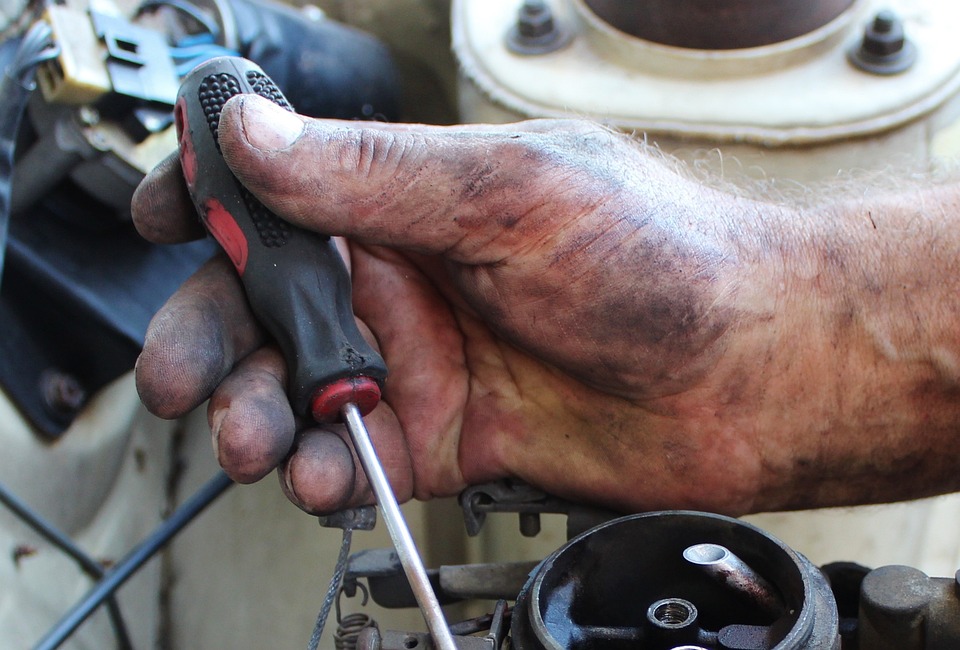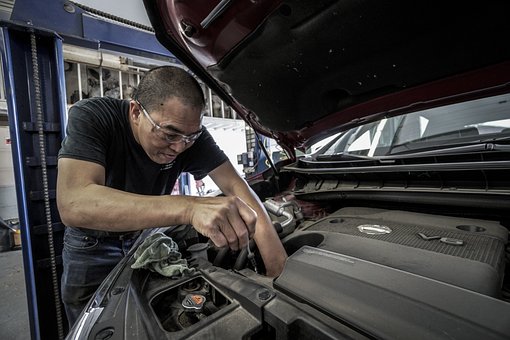Small Business Insurance for a Mechanic
A Good Mechanics is needed everywhere. It is awfully hard to function in 2019 without a reliable automobile. A good mechanic is invaluable to keeping a vehicle on the road. Because of this huge need for mechanics, there is equally a huge demand for their services. With this demand comes an elevated amount of risk. Cars come to mechanics in many different circumstances. Some are well kept and others look like they have not seen an oil change in months if not years. Because of the vast differences in cars that are worked on their is an elevated amount of risk a mechanic business takes on. This risk is in the form of liability to the car owner, but also liability to the health and well-being of the employee. Here are four workers compensation concerns, and fiveadditional policies mechanics should be concerned about when purchasing commercial insurance.

Workers Compensation Concerns for a Mechanic
What is Workers Compensation Insurance?
Workers’ Compensation Insurance is also required by state law for most business, in most industries. Workers Comp Coverage is known as the ‘exclusive remedy’ because the policy protects both the business and the employees when an employee is hurt on the job. The business benefits from a workers compensation system in the fact it cannot be sued for on the job injuries that occur as a part of normal business activities. The employees benefit from this policy by gaining medical coverage and some lost wages (normally 60% of regular wages) when they are hurt and not able to work.
Proper Classification of a Mechanic
First and foremost it is important to make sure all employees are properly classified for purposes of workers compensation insurance. The classification codes are determined by the National Council on Compensation Insurance (NCCI) or the state governing body. In most states there are around 700 different classification codes. The most common NCCI Workers Compensation Class Codes are 8380 (auto repair), 8393 (Auto Body Repair or Paint Shop), and 9516 (Auto Shop—Radio and Equipment).
If there are employees who are only clerical employees it is important to express this to the insurance agent. If there are some aspects of the mechanic business that are extremely dangerous and only a few employees partake in this work, it is important to make this clear with the agent and the insurance carrier. The agent and carrier can only act upon the information given to them by the business owner and it is in their best interest to always assume more risk. If the insurance agent assumes more risk, it will more than likely cost the business more in premium or it could cause a claim to not be covered.
Not properly classifying some or all of the employees within a business can cause quite a headache at the end of the term period. Not properly classifying an employee will result in either a credit or a debit on the policy. If a business receives a credit, it means the business has tied up cash in unnecessary premium payments throughout the year. In many instances this is valuable cash flow that could be used on more urgent business expenses. In the event there is a debit on the account (an underpayment), it means the business has to come up with additional premium in order to move forward with an in tact workers compensation policy.
Partner with an Independent Insurance Agent
An Independent Insurance Agent is usually the best way to get the most comprehensive policy at the best rate. This is because an independent agent can look up the going rate for multiple insurance carriers. They know which carriers have more of an appetite for auto repair and which are more likely to dig deep with credits and discounts. Independent insurance agents can also give a business owner the positives and negatives to each company and each particular policy. When one policy is dramatically lower in price it is usually for a reason. That reason is rarely because the policy covers more claims or the claims process is better. An independent agent can warn a business owner about carriers who have worse customer service. They can at the very least let a business owner know what they are getting into by going with a cheaper company. A captive agent works for only one company. They can only sell on the positives of their company and the policies of that carrier.
Workplace Safety for a Mechanic
Working as a Mechanic is a physical job. Most facilities are open to the elements. Providing fans in the Summer and some form of heat in the Winter is a good way to prevent employees from getting sick or exhausted. Keeping the floors the floors clear and clean will prevent some slips, trips, or falls. All mechanics need to be up to date on all shots, especially tetanus. More then anything, a focus on safety needs to start from the top of the organization. If the business owner, the leadership, and the key employees need to focus on safety and talk about it frequently. If they care about safety and the express their concern to all employees, all employees are more likely to focus on safety during their daily work days.

Additional Insurance Policies a Mechanic Should Secure
✓ General Liability Insurance
✓ Garage Keepers Liability
✓ Business Personal Property
✓ Hired and Non-Owned Auto
✓ Business Income with Extra Expense
General Liability Insurance for a Mechanic
General Liability Insurance is required by law for most employers in most states. The coverage protects a business from claims of property damage and bodily injury to outside third parties that result from the actions of a business or the employees of that business. It is rarely enough coverage to protect a business properly. It is important for business owners to discuss with an insurance agent what additional policies may or may not be necessary.
Garage Keepers Liability Insurance
Garage Keepers Liability Insurance provides coverage to a business for liability exposures with respect to damage to a customer’s auto or auto equipment that has been left in the dealer’s care for service or repair. This goes for vandalism, acts of god (Tornado, Hurricane, Hail, etc.), and many other reasons why the car may be damaged while in the possession of the business.
Business Personal Property Insurance
Business Personal Property Insurance is a type of insurance coverage that covers buildings, business personal property, and personal property of others for direct loss or damage. Items covered by this policy may include most items of value that aren’t considered a structure, fixture, automobile, watercraft, or aircraft. For a mechanic this might include desks, chairs, tools, equipment, appliances, and furniture.
Hired and Non-Owned Auto Insurance
Hired and Non-owned Auto Insurance for Mechanics covers the business for accidents that occur when an employee causes a wreck when using a vehicle the business does not own. The vehicle can be the employees personal vehicle or a vehicle that is rented by the business. Hired and Non-Owned Auto is most commonly added (or endorsed) onto a commercial auto policy.
Business Income with Extra Expense Insurance
Business Income and Expense Insurance is designed to cover a business when they are closed or partially closed due to a covered loss. The policy will take care of expenses like payroll, bills, and lost revenue due to an act that is covered by another policy. The key part of this policy is that the underlying cause of the claim has to be covered by another policy (General Liability, Commercial Property, Inland Marine, Etc.). If the underlying reason for the business being closed is not a covered loss, like in the event of a flood or a hurricane, this policy is not activated.
